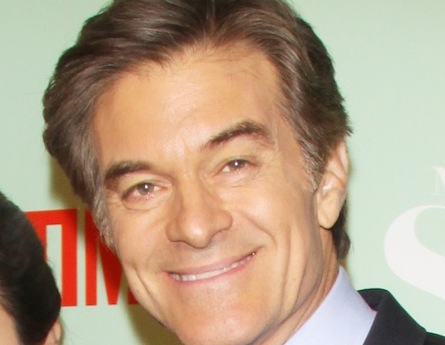Dr. Oz Tells Senate He Wants To Be Part of Solution

The smarter way to stay on top of broadcasting and cable industry. Sign up below
You are now subscribed
Your newsletter sign-up was successful
Sen. Claire McCaskill (D-Mo.) told syndicated talk show host Dr. Oz that he had not been asked to testify so they could beat up on him, but that did not prevent him from being on the hot seat for some tough questioning about the so-called "Oz effect"—the tendency for sales of weight-loss products to spike after being showcased/touted on his TV show.
Oz countered that he was passionate about some products, but has tried to tone down the language to keep it from being used as fodder for bogus claims about them.
McCaskill made it clear she was concerned about the role of broadcast, cable, Internet and other media outlets in conveying bogus or questionable weight-loss claims. That came in a hearing on "Protecting Consumers from False and Deceptive Advertising of Weight-Loss Products" in the Senate Consumer Protection Subcommittee, which she chairs.
In fact, she asked witness Mary Koelbel Engle, associate director of the Federal Trade Commission's ad practices division, whether the commission had the authority and inclination to pursue media outlets for carrying the false and deceptive claims. Engle said the FTC had the power, but that there were First Amendment issues in suing those outlets, and that the commissioner preferred working with the media voluntarily, a line the FTC has historically taken.
The FTC recently re-released its Gut Check list of seven bogus claims that should raise immediate red flags with the media.
Engle did say the media could do a better job of screening facially false claims.
McCaskill told Oz she was worried that his use of terms like "miracle" and "magic" were abetting the scammers who use clips from his show to promote their products. "While I understand that your message is occasionally focused on basics like healthy eating and exercise, I am concerned that you are melding medical advice, news, and entertainment in a way that harms consumers," she said.
The smarter way to stay on top of broadcasting and cable industry. Sign up below
Oz conceded that his flowery language had made the Federal Trade Commission's job harder, and that he had toned it down, though not his passion for some of the products he promoted, including ones his own family use, as a way to "jump start" viewers to lose weight and eat healthier. But McCaskill pointed to language from January of this year and from only a few weeks ago that echoed that enthusiasm for fat burning "miracles." Oz conceded it was hard to tone it down, and that it made him feel as though he was being disenfranchised and having some of his power [which he sees as the power to give his viewers hope and encouragement] being taken away.
Oz maintained that even when he did tone down the language, that had not prevented the bogus claims.
McCaskill encouraged him to use that enthusiasm to talk about the beauty of a walk at sunset or how good it felt to get on an exercise bicycle rather than how an "itty bitty pill" can flush fat out of the system. She called that latter passion a "recipe for disaster."
McCaskill said she knew Oz understood how powerful his platform was, and that with power came responsibility. She said he had been made an example at the hearing because of that power. McCaskill advised him to use that power to help police, rather than be part of the problem. Oz said he came to the hearing to be part of the solution.
He suggested that he had made a mistake by not actually identifying the reputable marketers of the products on his show, rather than let the disreputable ones commandeer unauthorized clips from the program to promote their versions. When Sen. Richard Blumenthal (D-Conn.) said that a list of the brands Dr. Oz thought were reputable could be a good tool for consumers, Oz said he planned to come up with one.
Oz also suggested it would be good to come up with a checklist of celebrity endorsers and what they actually endorse—he has not endorsed any products, he says. His other suggestions included a whistleblower system to encourage employees of scammer companies to come forward, and a privately funded bounty system to expose online fraudsters.
Contributing editor John Eggerton has been an editor and/or writer on media regulation, legislation and policy for over four decades, including covering the FCC, FTC, Congress, the major media trade associations, and the federal courts. In addition to Multichannel News and Broadcasting + Cable, his work has appeared in Radio World, TV Technology, TV Fax, This Week in Consumer Electronics, Variety and the Encyclopedia Britannica.

